
Samuel John "Lightnin'" Hopkins was an American country blues singer, songwriter, guitarist and occasional pianist from Centerville, Texas. In 2010, Rolling Stone magazine ranked him No. 71 on its list of the 100 greatest guitarists of all time.

Ella at Duke's Place is a 1965 studio album by Ella Fitzgerald and Duke Ellington, accompanied by his Orchestra. While it was the second studio album made by Fitzgerald and Ellington, following the 1957 song book recording, a live double album Ella and Duke at the Cote D'Azur was recorded in 1966. Ella at Duke’s Place was nominated for Best Female Pop Vocal Performance at the 1967 Grammy Awards.

The Cat is a 1964 album by Jimmy Smith. It features Smith on Hammond B-3 organ with big band arrangements by composer Lalo Schifrin. The album reached number 12 on the Billboard 200 chart. Its title track peaked at number 67 on the Billboard Hot 100 for the weeks of September 26 and October 3, 1964.

Guess Who is a studio album by B. B. King. It was released in 1972 by ABC Records.

Bobby Bland and B. B. King Together Again...Live is a live album recorded in 1976 at the Coconut Grove in Los Angeles by Bobby Bland and B. B. King.
John Richard "Streamline" Ewing was an American jazz trombonist.

The Individualism of Gil Evans is an album by pianist, conductor, arranger and composer Gil Evans originally released on the Verve label in 1964. It features Evans' big band arrangements of five original compositions and compositions by Kurt Weill, Bob Dorough, John Lewis and Willie Dixon.
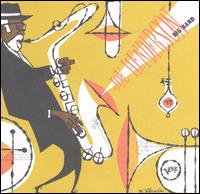
Big Band is a 1997 album by the jazz saxophonist Joe Henderson, the fourth of the five albums he recorded with Verve Records at the end of his career. As the title suggests, it contains arrangements for a full big band.

Guitar Forms is a 1965 album by Kenny Burrell, featuring arrangements by Gil Evans. Evans' orchestra appears on five of the album's nine tracks, including the nearly 9-minute "Lotus Land". Three tracks are blues numbers in a small group format and there is one solo performance: "Prelude #2".
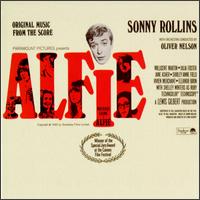
Alfie is a 1966 album by jazz saxophonist Sonny Rollins of music composed for the 1966 British film of the same name.

Blues to the Bone is the twenty-seventh studio album by Etta James. The album contains a selection of twelve blues standards which are among her favourites. James and her sons Donto and Sametto James produced the album with Josh Sklair, which reached number four in the Billboard Top Blues chart.
James Edward Bond Jr., known as Jimmy Bond, was an American double bass player, arranger and composer who performed and recorded with many leading jazz, blues, folk and rock musicians between the 1950s and 1980s.
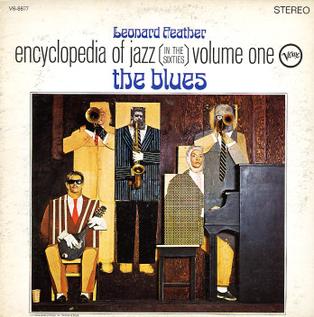
Encyclopedia of Jazz is an album released on the Verve label compiled by jazz journalist Leonard Feather featuring tracks which were recorded to accompany Feather's Encyclopedia of Jazz in the Sixties. The album features three tracks by the Encyclopedia of Jazz All Stars arranged and conducted by Oliver Nelson along with one track each by Jimmy Smith with Wes Montgomery, Count Basie and Johnny Hodges with Earl Hines.

Lightnin' is an album by the blues musician Lightnin' Hopkins, recorded in 1960 and released on the Bluesville label the following year.

Lightnin' Hopkins is an album by blues musician Lightnin' Hopkins, recorded in 1959 and released on the Folkways label. The album was first released around the time that the book The Country Blues came out and was an instant success. It gave Hopkin's career a new lease on life.

Down South Summit Meetin' is an album by the blues musicians Brownie McGhee, Lightnin' Hopkins, Big Joe Williams and Sonny Terry, recorded in 1960 and released on the World Pacific label.

Mojo Hand is an album by the blues musician Lightnin' Hopkins, recorded in 1960 and released on the Fire label in 1962.
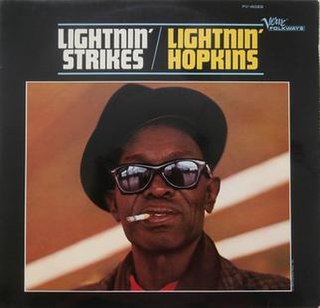
Lightnin' Strikes is an album by blues musician Lightnin' Hopkins recorded in Los Angeles in 1965 and released on the Vee-Jay label.
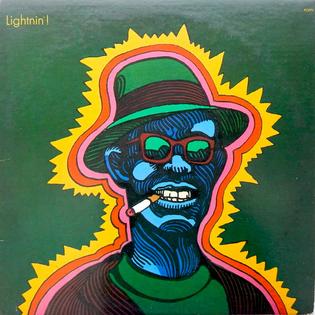
Lightnin'! is an album by the blues musician Lightnin' Hopkins recorded in California in 1969 and released on the Poppy label as a double LP.
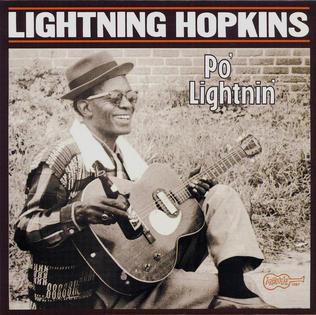
Po' Lightnin' is an album by blues musician Lightnin' Hopkins recorded in California in 1969 and originally released on the Arhoolie label in 1983.



















